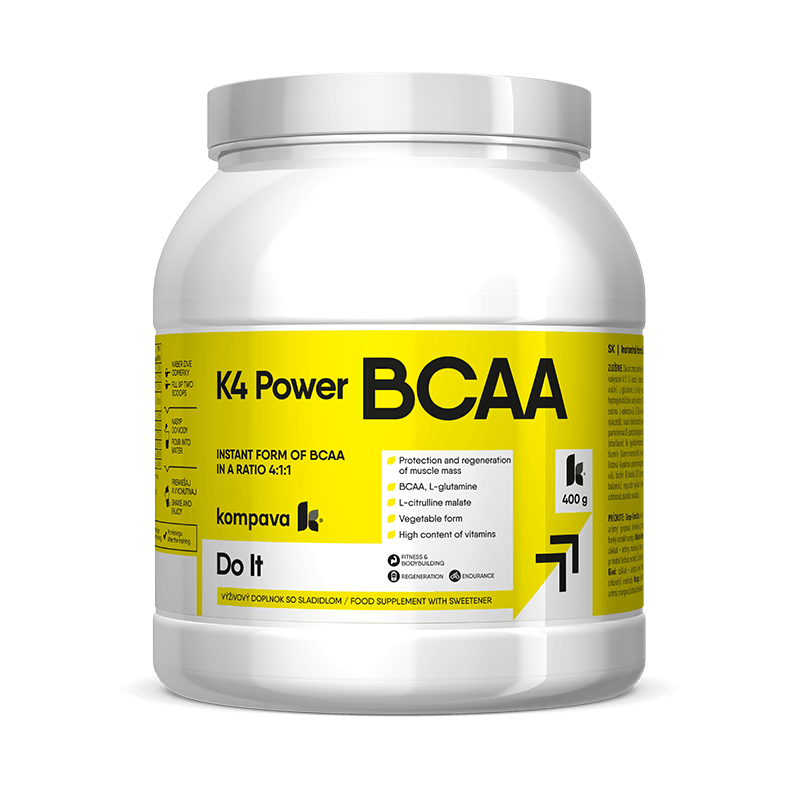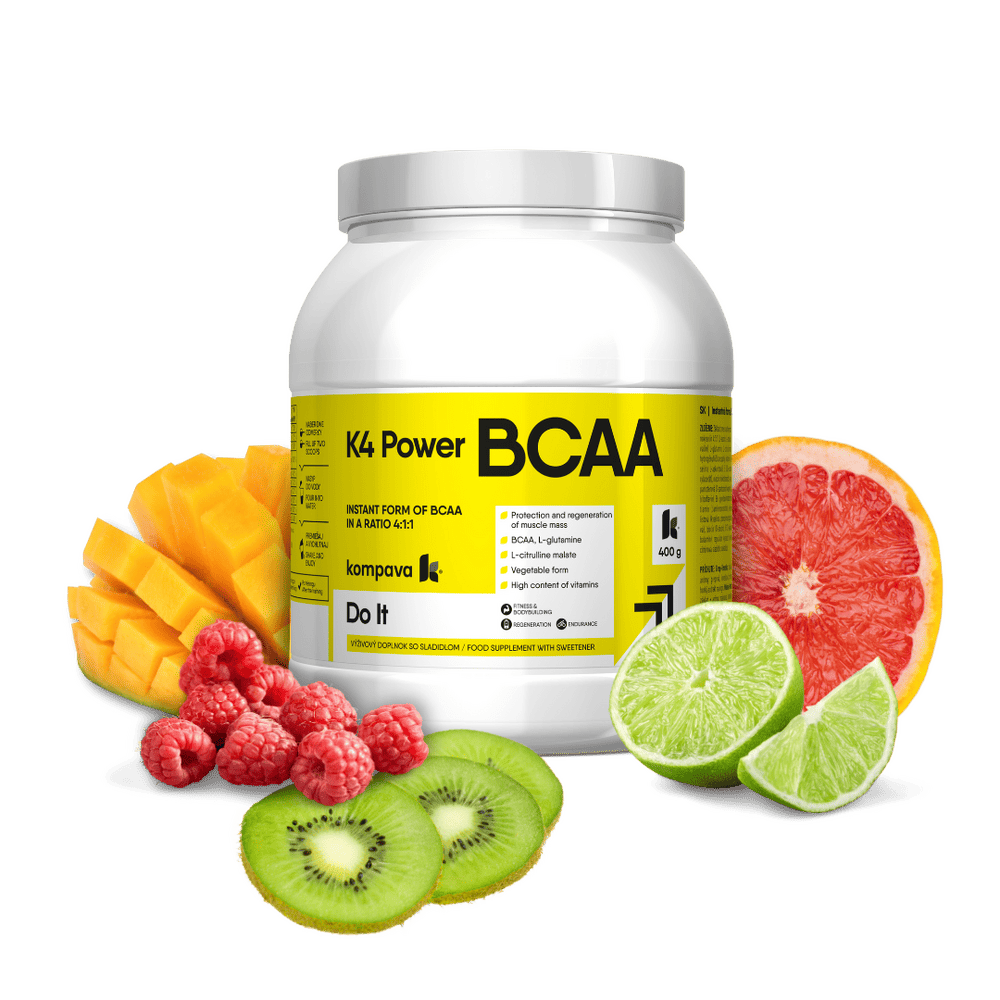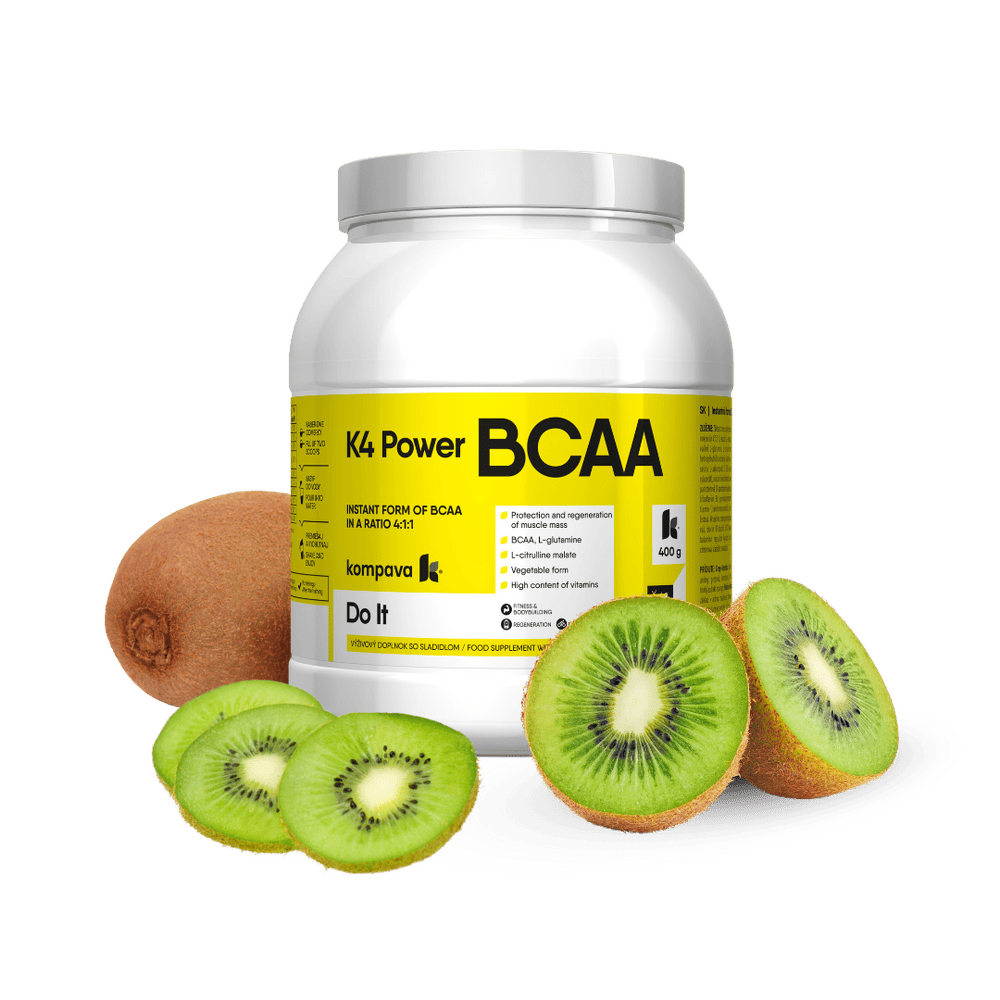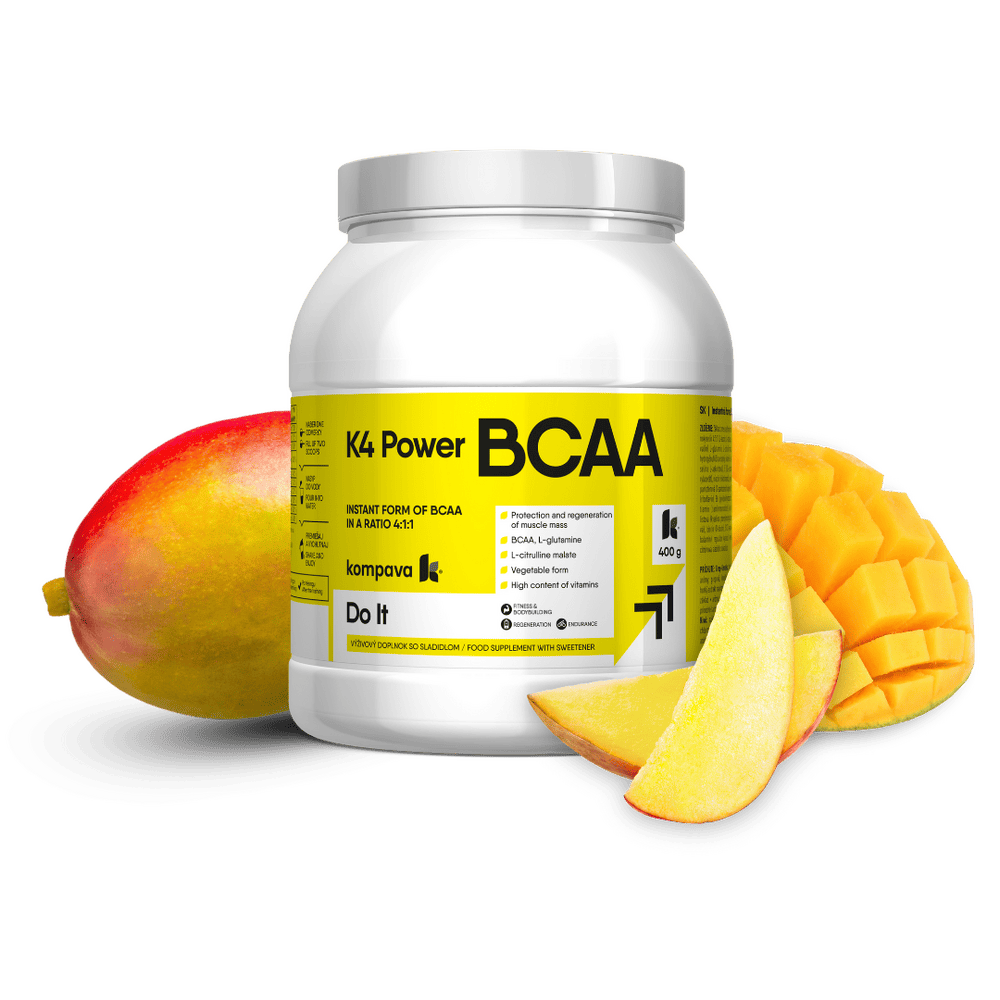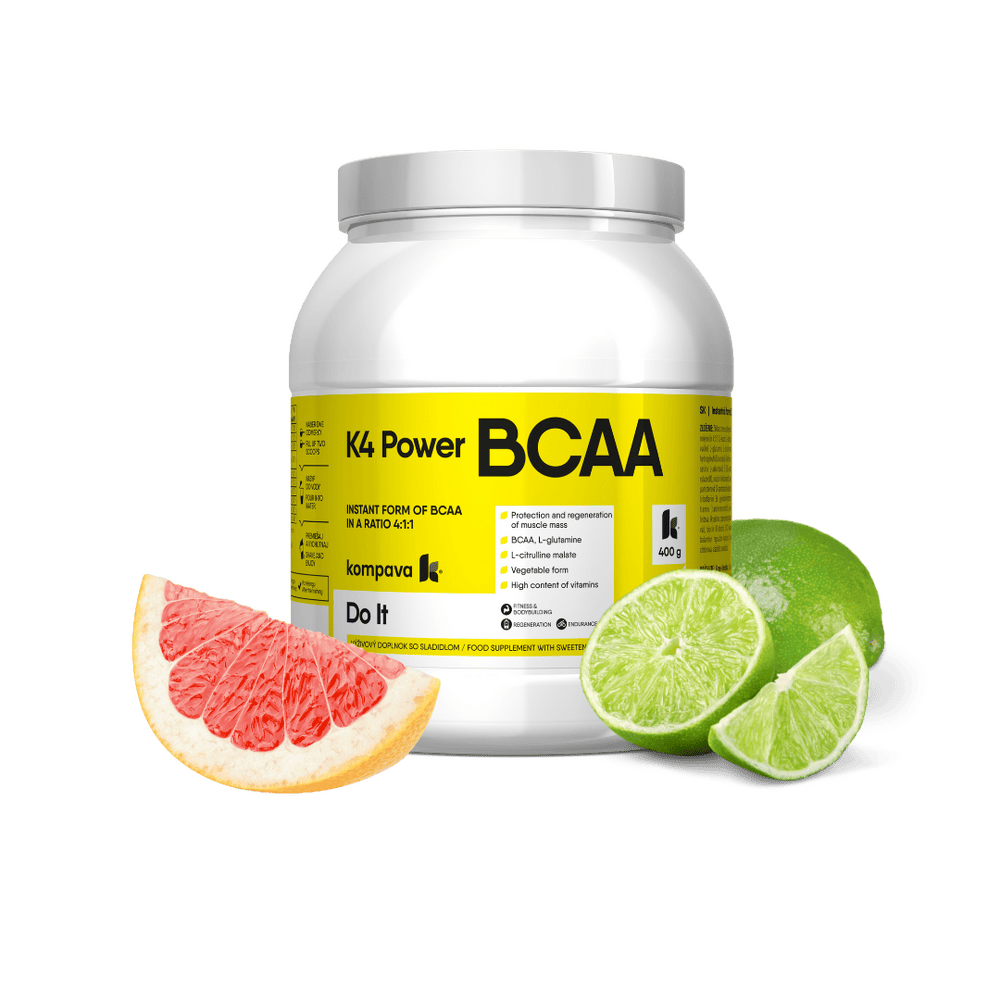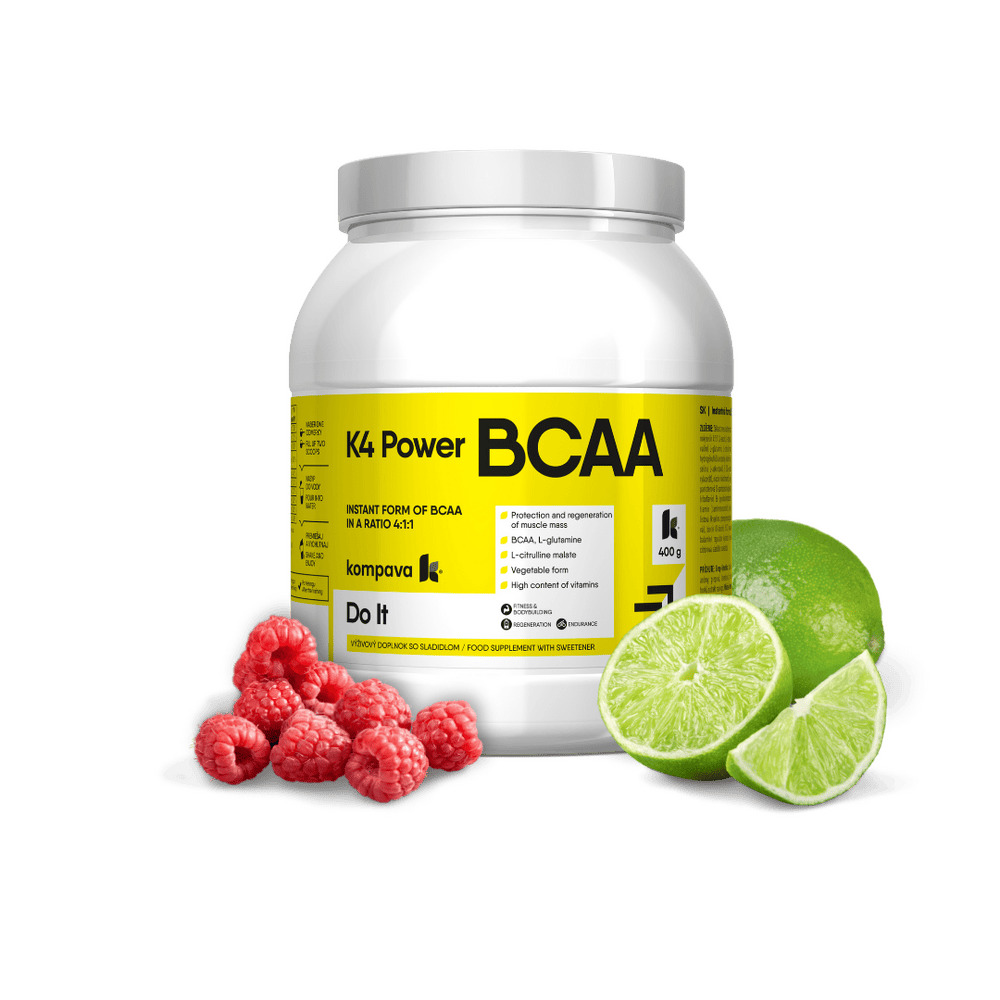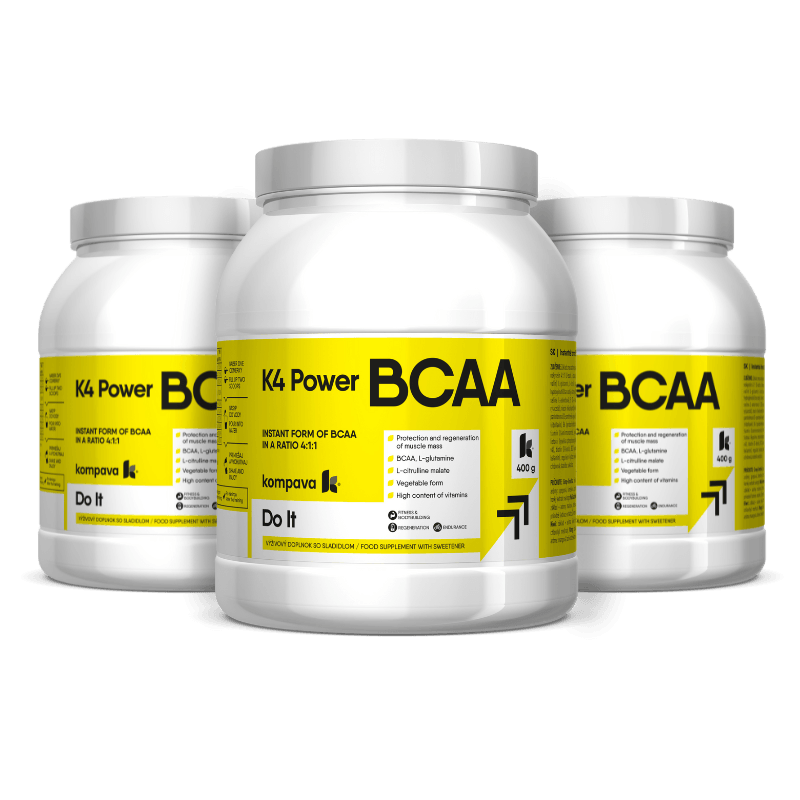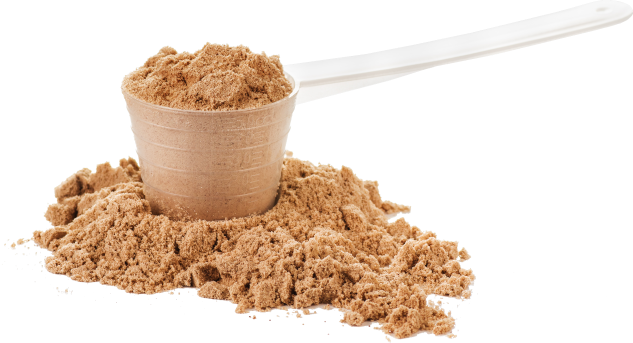
Effective muscle regeneration with vegetable BCAA amino acids in a ratio of 4:1:1. K4 Power BCAAs are enriched with L-glutamine, citrulline malate and group B vitamins for an even better effect. L-glutamine supports faster recovery of muscle mass and fights against exhaustion, citrulline malate improves physical performance and group B vitamins provide energy and support the proper functioning of the metabolism .
One dose contains up to 5g of BCAA. This amount is ideal for achieving optimal physical condition.
BCAA amino acids make up to 35% of the content of muscle mass and are crucial for the generation of energy in sports-stressed muscles. They are considered the basic building blocks of proteins and participate in the formation of new muscle tissue. Their presence in the body accelerates the production of proteins and prevents their breakdown in the muscles during strenuous exercise and physical exertion. K4 Power BCAAs are created from special branched essential BCAA amino acids - leucine, isoleucine and valine in a unique ratio of 4:1:1. The 4:1:1 ratio means that leucine is present in the largest amount (most effective for supporting muscle synthesis and recovery). The body cannot produce these important compounds on its own, so it is essential that you obtain them from food or through nutritional supplements. BCAA 4:1:1 dissolve easily in water, which allows for quick and efficient absorption during or after training.
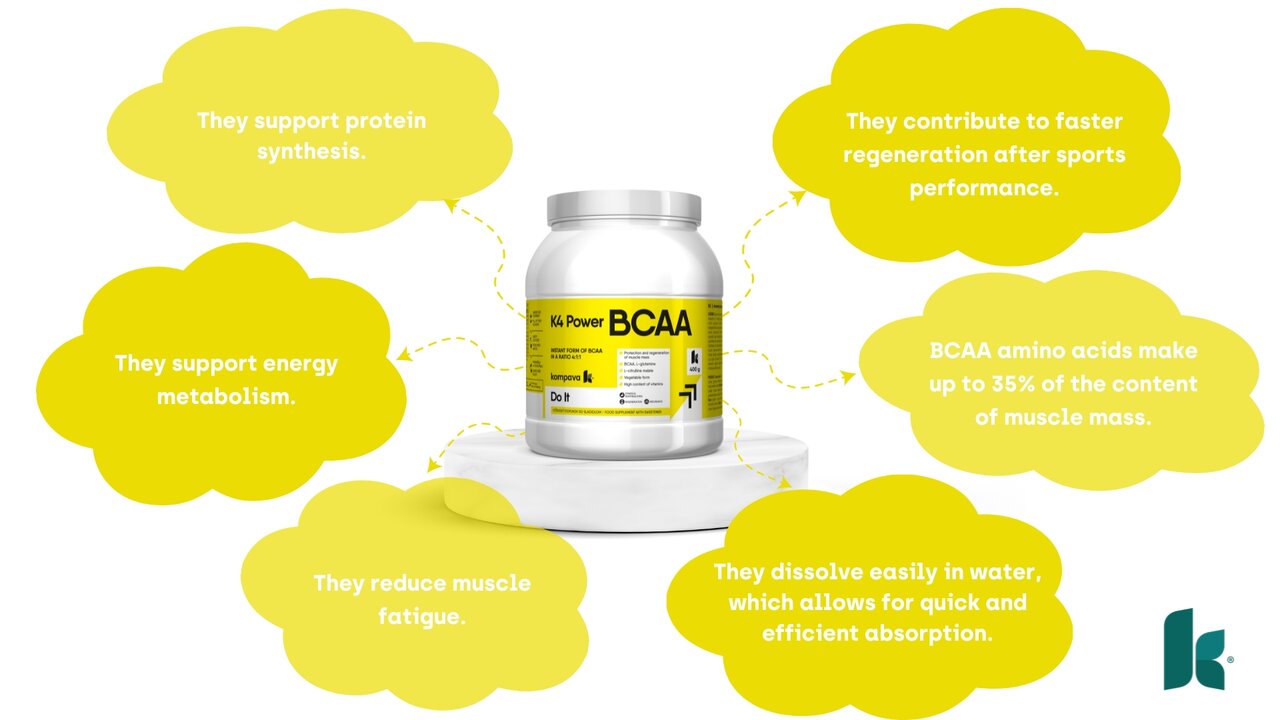
K4 Power BCAAs contain:
- Instant form of plant amino acids BCAA 4:1:1 – leucine, isoleucine, valine
Leucine is a key amino acid that plays an important role in stimulating muscle synthesis and recovery, while isoleucine and valine help maintain the body's nitrogen balance and reduce muscle fatigue during training. This BCAA ratio is designed to provide optimal support for muscle growth and recovery after intense exercise. - L-glutamine
L-glutamine is an amino acid that has important roles in the body, especially in muscle tissue and the immune system. L-glutamine is often referred to as the "regeneration amino acid" because of its role in the repair and regeneration of muscle tissue. It also helps to minimize muscle catabolism (decomposition of muscle tissue into energy), thus maintaining muscle mass and sports performance. Glutamine is also an important player in maintaining the healthy function of the small intestine, the integrity of the mucosa and the immune response. Its sufficient supply from food is important for maintaining the overall health of the digestive system. - L- citrulline – malate
An amino acid that improves tissue and muscle blood flow and a greater supply of energy and oxygen to the muscles. Its effect is linked to its ability to increase the production of nitric oxide (NO), which improves blood flow and nutrient exchange in the muscles, which helps in faster muscle regeneration and minimizes muscle fatigue after training. - Folate
It serves for the normal synthesis of amino acids and the reduction of fatigue and exhaustion. Folate participates in the synthesis and repair of DNA, which accelerates the regeneration of cells in the muscles after physical activity. - Vitamins B1, B12, B6
Vitamins B1, B6 and B12 are crucial for the health and protection of muscle tissue. B1 (thiamine) helps with the proper function of muscle cells, B6 (pyridoxine) supports the synthesis of amino acids necessary for muscle growth and recovery, and B12 (cobalamin) ensures a healthy nervous system, which supports muscle coordination and proper functioning. - Vitamin B2
Vitamin B2, also known as riboflavin, plays an important role in the protection of muscle tissue. It is essential for the metabolism of carbohydrates, fats and proteins, which are crucial for energy and muscle recovery during physical activity. Its antioxidant properties also protect muscles from damage caused by oxidative stress, which can promote muscle recovery and reduce muscle fatigue after exercise. - Vitamin B6
Vitamin B6, also known as pyridoxine, plays an important role in protecting muscle tissue and promoting muscle growth and recovery. Its participation in protein metabolism helps in the synthesis of amino acids, which are the basic building block of muscles. In addition, vitamin B6 supports the formation of hemoglobin, which carries oxygen to muscle cells, which is important for muscle performance and endurance. Its anti-inflammatory properties also help protect muscles from damage caused by intense exercise.
